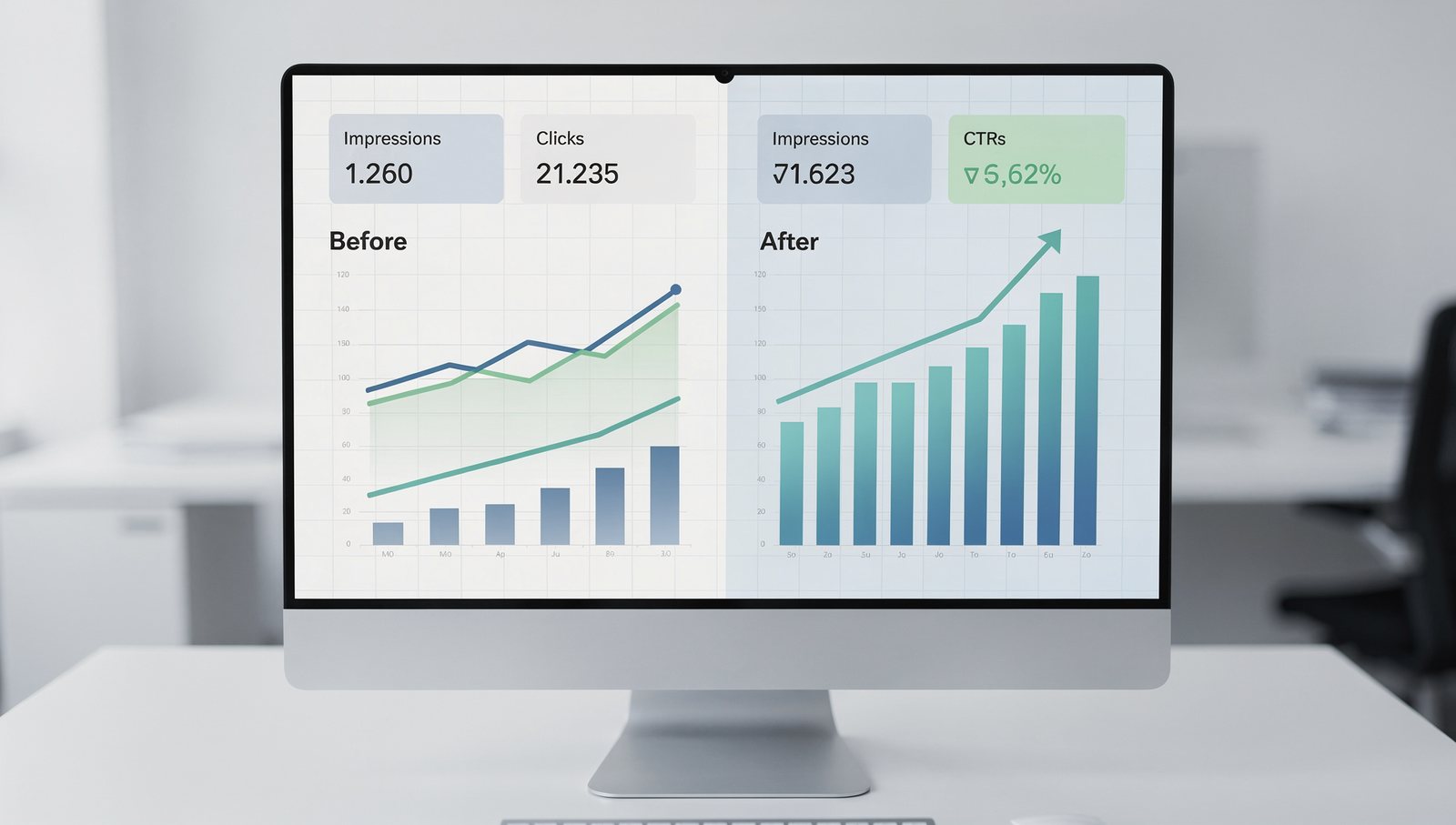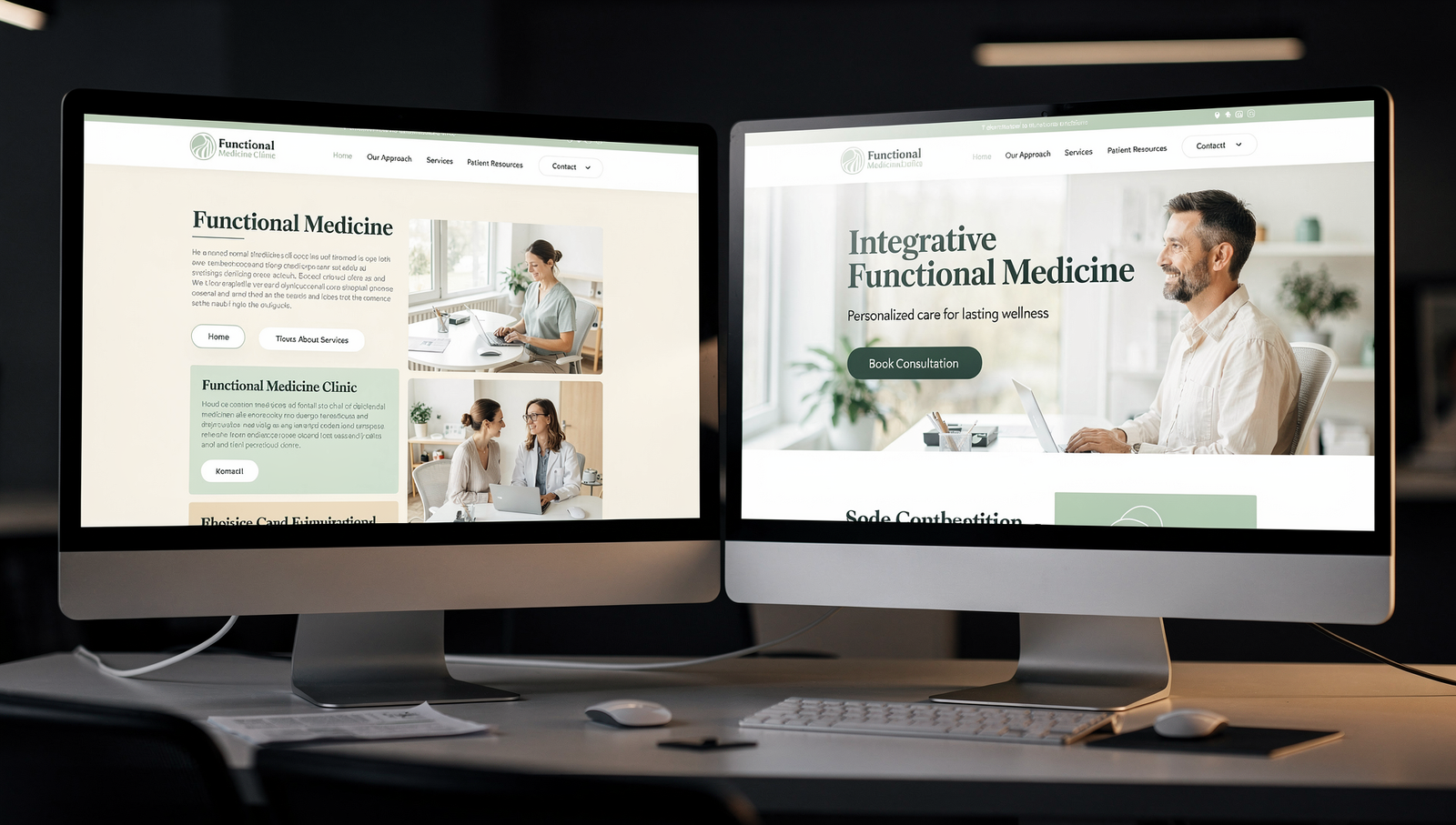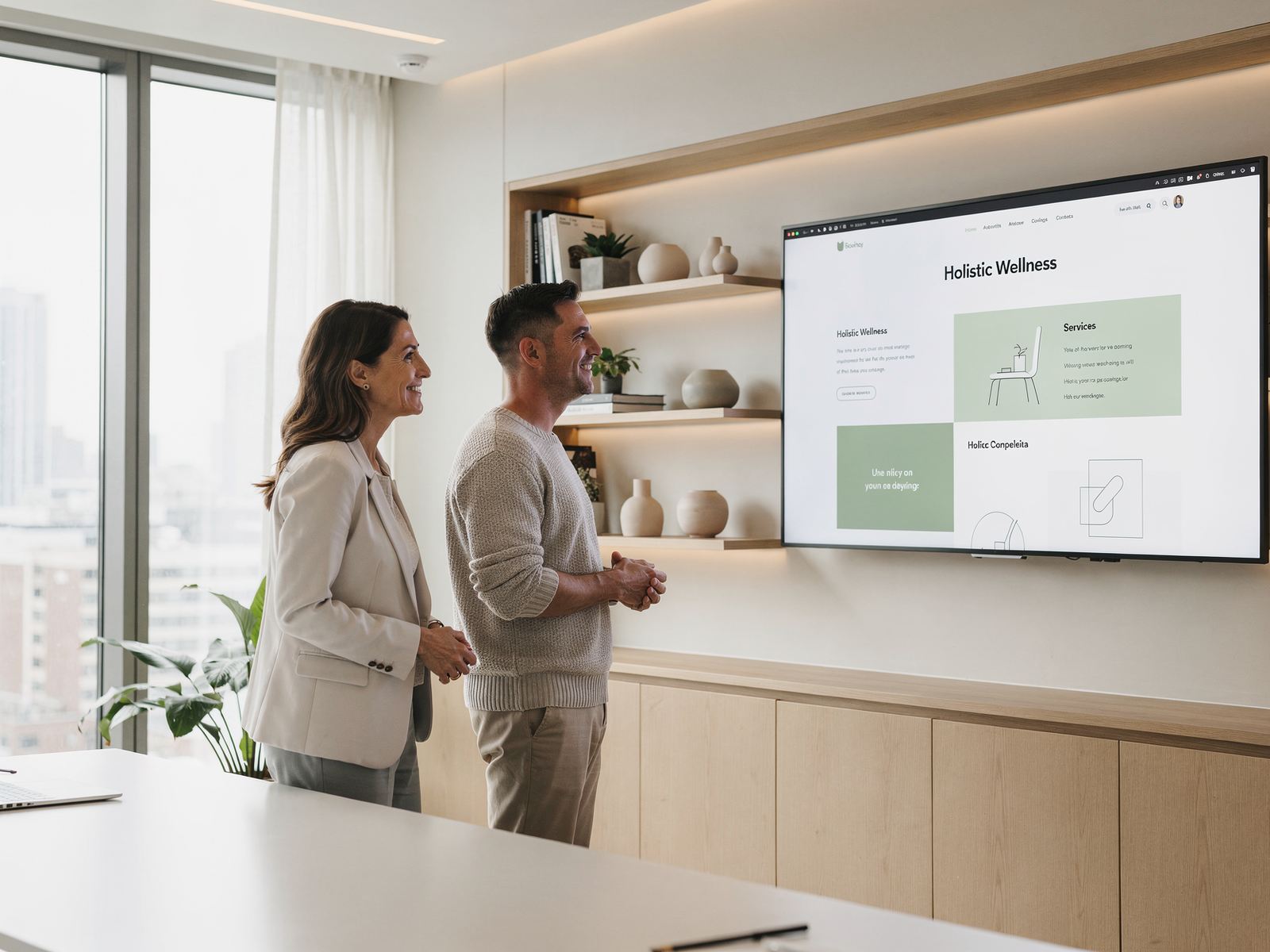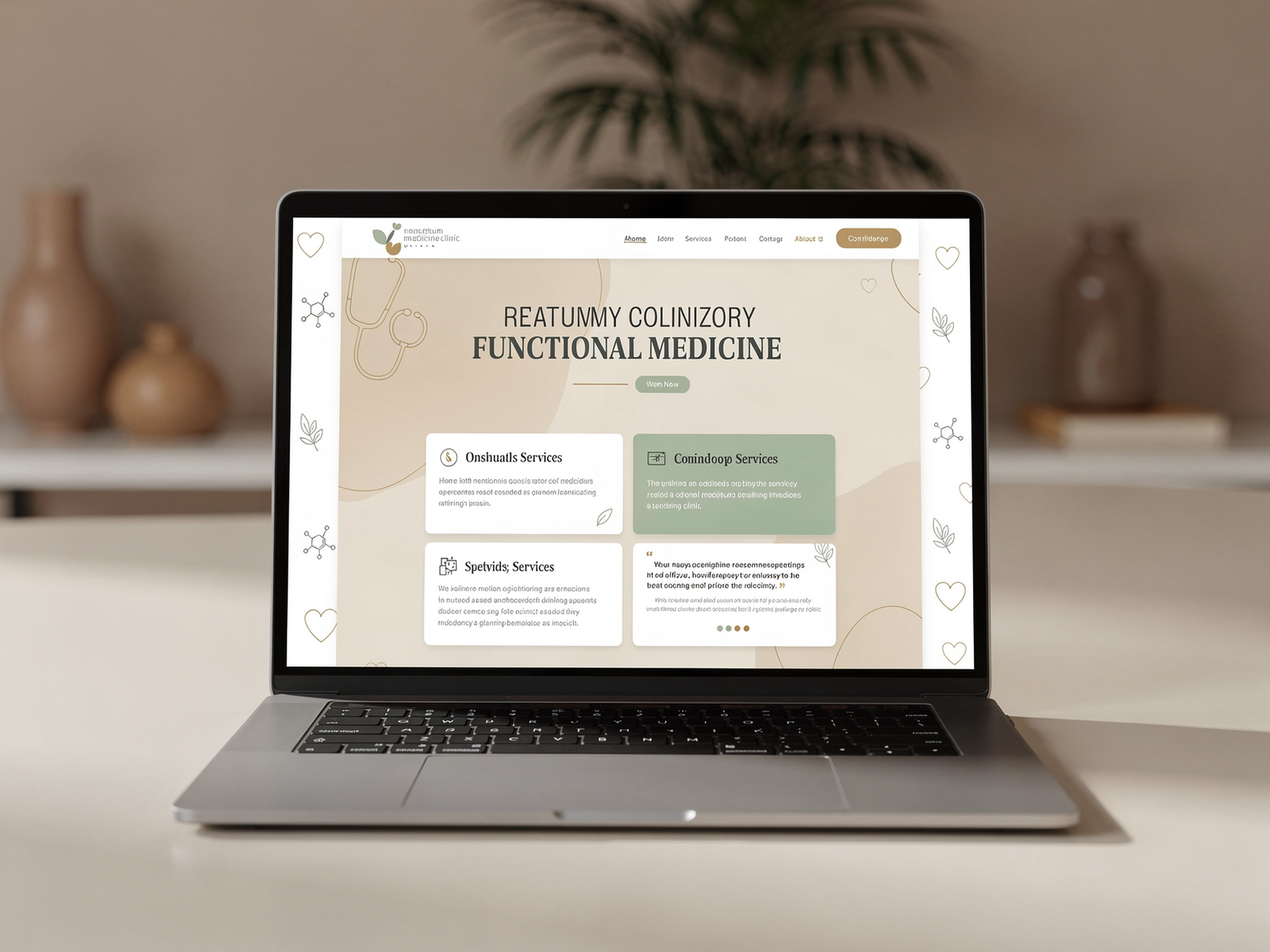IDX SEO: How Realtors Rank Listings and Get More Leads
Watch the video to learn why showcase idx is an absolute game changer for real estate SEO!
Want More Clients Fast?
Steal This Website Rescue Kit to Get More Clients, More Calls, and More Sales on Autopilot
When it comes to capturing qualified leads online, nothing is more important than your property search experience. And for that, IDX is king. But here’s the catch: if you’re not optimizing IDX pages for SEO, you’re basically hiding your best listings from Google. Buyers and sellers may never even find you, and instead, they’ll end up on Zillow or Realtor.com. That’s why mastering IDX optimization is non-negotiable for modern agents.
Why Optimizing IDX Pages for SEO Matters
Your IDX pages are the heartbeat of your website. They’re where users spend the most time searching homes, filtering options, and exploring neighborhoods. Yet many agents treat IDX like a plug-and-play feature. The problem? Out-of-the-box IDX feeds are rarely SEO-friendly.
Here’s a stat that might make you cringe: according to studies, over 44% of all real estate website traffic goes directly to property detail pages (PDPs). If those pages aren’t optimized, you’re losing nearly half your potential visibility.
The good news? With the right strategy, IDX pages can be powerful SEO magnets, pulling in organic traffic day after day.
Mistake 1: Relying on Duplicate MLS Content
The MLS data powering IDX feeds is the same across thousands of realtor websites. That means Google sees much of it as duplicate content. If you don’t customize these pages, you’ll never outrank competitors.
The fix: add unique value. Write custom community descriptions, insert neighborhood guides, and include your own voice. Pair an MLS feed with local expertise. For example, a property page in San Antonio could include an intro like: “Homes in Stone Oak are known for their large lots, top-rated schools, and quick access to Loop 1604.”
For more inspiration, check out our post on Real Estate Blog Post Ideas, which shows how to build unique content around standard MLS data.
Mistake 2: Ignoring Meta Data on IDX Pages
Most IDX plugins auto-generate bland meta titles like “123 Main Street.” That won’t cut it. You need meta titles and descriptions that are keyword-rich and clickable.
Instead of “123 Main Street | MLS #12345,” optimize it as:
“Luxury 4-Bedroom Home for Sale in Tampa | Pool, Open Floor Plan, Top Schools.”
This grabs attention and satisfies Google’s need for descriptive keywords.
Mistake 3: Poor URL Structure
Some IDX solutions spit out ugly URLs like yoursite.com/idx/?id=4567. These tell Google nothing. Clean URLs, like yoursite.com/homes-for-sale/tampa/stone-oak/123-main-street, make a world of difference.
Google loves organized, keyword-rich URLs. And so do buyers.
Mistake 4: Not Interlinking IDX Pages
A property page should never be a dead end. Internal links help both SEO and user experience.
Link listings back to community pages
Link communities back to blog content
Link blog posts to related property searches
For example, your “Homes for Sale in Orlando” page should link to posts like Local SEO for Real Estate Agents and community guides. This web of links signals authority and keeps users browsing.
Mistake 5: Failing to Optimize for Local SEO
Google wants hyper-local results. Optimizing IDX means tailoring pages to neighborhoods, zip codes, and school districts.
Actionable steps:
Add city names in titles, headers, and alt text
Build separate landing pages for key communities
Write custom introductions for each area
Our Best Free Tools for Realtors post highlights SEO tools that make managing local keywords easier.
Mistake 6: Neglecting Schema Markup
Schema is code that helps Google understand your pages. With IDX, schema can highlight property details like price, square footage, and location. When done right, this can trigger rich snippets in search results (like star ratings or pricing info).
Realtors who implement schema often see significant increases in click-through rates.
Mistake 7: Slow IDX Performance
A slow IDX feed kills rankings. Remember, 53% of mobile users leave if a site takes longer than three seconds to load. If your property pages lag, buyers won’t wait.
Audit your IDX plugin. If it’s dragging your load speed, it’s time to upgrade. See our breakdown of the Best IDX Plugins for WordPress to compare performance.

See How Many Closings You're Losing to Zillow!
Click Here to Use our Calculator to See How Many Clients Zillow is Taking From You Per Year!
Chart: How IDX Optimization Impacts SEO
| Optimization Strategy | SEO Benefit | Impact on Leads |
|---|---|---|
| Custom community content | Avoids duplicate content | +35% organic traffic |
| Keyword-rich meta data | Higher click-through rates | +20% site visits |
| Clean URL structures | Improves crawlability | +25% indexed pages |
| Internal linking | Increases dwell time | +30% lead conversions |
| Local SEO targeting | Ranks for long-tail searches | +40% organic leads |
| Schema markup | Unlocks rich snippets | +15% CTR in SERPs |
| Fast IDX load speed | Improves rankings | -50% bounce rate |
These numbers are based on aggregated SEO case studies in real estate. While your results will vary, the takeaway is clear: every IDX optimization step compounds to bring in more clients.
How to Actually Implement These Fixes
Here’s a practical roadmap you can start today:
Audit your current IDX plugin – check URLs, speed, and customization options.
Create local community landing pages – add your own text above the IDX results.
Rewrite titles and meta descriptions – focus on readability and keywords.
Add schema markup – many WordPress plugins simplify this.
Interlink everything – listings, blogs, and community guides.
Monitor performance – use Google Search Console to track rankings and clicks.
For more advanced guidance, see Real Estate SEO Best Practices and How Realtors Can Dominate Google with Local SEO.
Pro Tip: Don’t Forget Conversion Elements
Getting traffic is only half the battle. You also need to convert it. This means optimizing IDX pages not just for Google, but for people:
Add lead capture forms next to listings
Highlight CTAs like “Book a Tour Today”
Use testimonials to build trust (see 5 Signs Your Website Is Repelling High-Value Clients for pitfalls to avoid)
A beautifully optimized IDX page that doesn’t capture leads is like a Ferrari without gas. Looks great, goes nowhere.
Final Thoughts
At the end of the day, optimizing IDX pages for SEO is about blending MLS data with your unique expertise, structuring it so Google understands it, and making it irresistible for buyers and sellers. Realtors who nail this strategy not only outrank competitors but also build sustainable pipelines of organic leads.
At Digital Dream Homes, we specialize in turning ordinary IDX websites into luxury, SEO-powered lead machines. If you’re ready to make your IDX pages your strongest sales tool, book a free consultation today and let’s bring your online presence to life.
Matt Pieczarka
Some More Posts About Strategy and Growth…
- Marketing Plan For Small Business 2026 Every Owner Should Copy
- Benefits of Professional Website for Small Business: The Hidden Profits
- How to Get More Referrals for Small Local Business Fast
- Customer Retention Strategies Small Business Owners Never Hear About
- How Small Businesses Compete Online And Actually Win In 2026
- Blogging for Small Business Growth: 2026 Profit Multiplier
- Sales Funnel For Small Business Website That Prints Money
- What Is A Listicle And Why Your Website Desperately Needs One
- Strategic Website Design That Turns Small Business Clicks Into Clients
- The Simple Blueprint to Explosive Small Business Growth
Want a Free Website Audit?
Fill out your information below and we will send you a personal screen share video of tips on how to make your actual website better!
9 Functional Medicine Local SEO Wins That Fill Your Calendar
9 Functional Medicine Local SEO Wins That Fill Your Calendar Watch the video to learn the best SEO technique to get the most traffic to your website! Want More Clients Fast?
7 Functional Medicine SEO Company Checks That Bring More Patients
7 Functional Medicine SEO Company Checks That Bring More Patients Watch the video to learn how to use your website to get qualified leads and more patients! Works for every
7 Functional Medicine SEO Services That Bring More Patients
7 Functional Medicine SEO Services That Bring More Patients Watch the video to learn how to structure your website for the maximum conversions. Works for every industry! Wan
5 Functional Medicine Website Consulting Tweaks That Get More Patients
5 Functional Medicine Website Consulting Tweaks That Get More Patients Watch the video to learn how to structure your website for the maximum conversions. Works for every industry!
7 Functional Medicine Website Redesign Signs You’re Losing Patients
7 Functional Medicine Website Redesign Signs You’re Losing Patients Watch the video to learn how to structure your website for the maximum conversions. Works for every industry!
7 Functional Medicine Website Support Wins That Grow Your Practice
7 Functional Medicine Website Support Wins That Grow Your Practice Watch the video to learn the exact layout to maximize your lead conversions on your website! Works with any indus
7 Integrative Medicine Website Design Services That Win Patients
7 Integrative Medicine Website Design Services That Win Patients Watch the video to learn how to craft your homepage for maximum trust and boost conversions for more leads and sale
7 Holistic Doctor Website Design Secrets That Book Clients
7 Holistic Doctor Website Design Secrets That Book Clients Watch the video to learn the exact layout to boost leads and sales on your website! https://youtu.be/XaEbNPZxi0U?si=AZP_g
9 Functional Medicine Web Design Agency Benefits for Clinics
9 Functional Medicine Web Design Agency Benefits for Clinics Watch the video to learn how to craft the perfect homepage layout to boost trust and sales! https://youtu.be/XaEbNPZxi0









